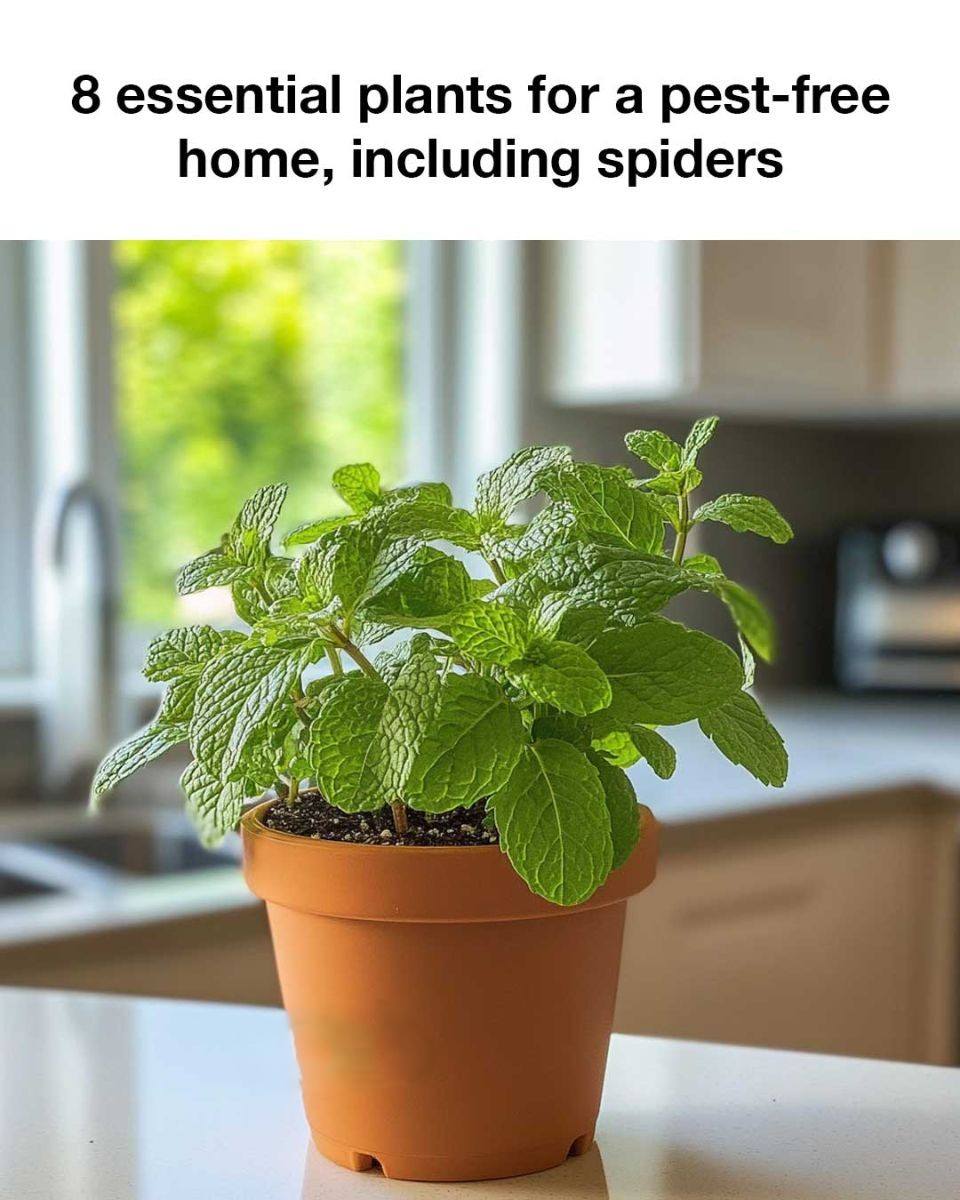In the quest for a pest-free home, many people turn to chemical solutions, but these can often bring unwanted side effects and environmental concerns. Fortunately, nature provides us with a variety of plants that can help keep pests at bay while enhancing the beauty and ambiance of our living spaces. These plants not only serve as natural repellents but also add a touch of greenery and fragrance to your home.
From fragrant herbs to vibrant flowers, each plant has its unique properties that deter different types of pests. By strategically placing these plants around your home, you can create a natural barrier against unwanted insects and enjoy a more harmonious living environment. Here are eight essential plants that can help you achieve a pest-free home.
1. Lavender: A Fragrant Shield Against Pests
Lavender is renowned for its soothing fragrance and beautiful purple blooms, but it is also a powerful natural pest repellent. The essential oils in lavender contain compounds like linalool and linalyl acetate, which are effective against mosquitoes, fleas, and moths. Placing lavender plants near windows or doorways can help prevent these pests from entering your home.
For optimal pest-repelling effects, consider using lavender essential oil in a diffuser or making sachets filled with dried lavender flowers to place in closets and drawers. These sachets can also help keep moths away from your clothes and linens.
2. Peppermint: The Minty Barrier for Insects
Peppermint is not only a refreshing herb for culinary uses but also a potent insect deterrent. Its strong menthol scent is known to repel ants, spiders, and mosquitoes. Plant peppermint in pots around your home, particularly near entry points, to create a natural barrier against these pests.
Additionally, peppermint essential oil can be used to make a homemade insect spray. Mix 10-15 drops of peppermint oil with one cup of water and a few drops of dish soap in a spray bottle. Use this mixture to spray around windows, doors, and other areas where insects are likely to enter.
3. Lemongrass: A Citrus-Scented Mosquito Repellent
Lemongrass is a tropical plant that is famous for its citrusy aroma, which is a natural mosquito repellent. The plant contains citronella, a compound widely used in commercial mosquito repellents. Growing lemongrass in pots or garden beds near outdoor seating areas can help keep mosquitoes at bay.
For added protection, crush a few lemongrass leaves to release their oils and rub them on your skin before heading outdoors. This can provide a temporary shield against mosquito bites.
4. Agastache Cana: The Hummingbird Mint with Pest-Repelling Powers
Agastache Cana, also known as hummingbird mint, is a beautiful plant that attracts pollinators like hummingbirds and butterflies while repelling pests such as mosquitoes and flies. Its vibrant pink or purple flowers and minty aroma make it a delightful addition to any garden.
Plant Agastache Cana in sunny spots with well-drained soil to maximize its growth and pest-repelling properties. Its presence can enhance the biodiversity of your garden while keeping unwanted insects at a distance.
5. Basil: A Culinary Herb That Keeps Bugs at Bay
Basil is a versatile herb that is not only a staple in many kitchens but also an effective insect repellent. Its strong scent deters flies and mosquitoes, making it an excellent choice for indoor and outdoor planting. Keep basil pots on kitchen windowsills or near outdoor dining areas to enjoy its dual benefits.
For a homemade insect repellent, crush basil leaves and mix them with a carrier oil, such as olive oil, to apply on your skin. This natural solution can help protect you from insect bites while adding a pleasant aroma.
6. Rosemary: Aromatic Defense Against Insects
Rosemary is a hardy herb with a woody fragrance that is known to repel mosquitoes and other insects. Its needle-like leaves contain oils that are effective in deterring pests. Plant rosemary in pots or garden beds near entryways to create a fragrant barrier.
To enhance its pest-repelling properties, consider burning dried rosemary sprigs in a fire pit or barbecue. The smoke produced can help keep mosquitoes away from outdoor gatherings.
7. Lemon Balm: A Lemon-Scented Mosquito Deterrent
Lemon balm is a member of the mint family and is known for its lemony scent, which is effective in repelling mosquitoes. Its leaves contain citronellal, a compound similar to citronella, making it a natural choice for mosquito control.
Grow lemon balm in pots or garden beds near outdoor seating areas to enjoy its mosquito-repelling benefits. Additionally, you can crush the leaves and rub them on your skin for a natural insect repellent.
8. Marigolds: Bright Blooms That Ward Off Pests
Marigolds are not only vibrant and cheerful flowers but also excellent pest deterrents. They contain pyrethrum, a natural insecticide that repels aphids, mosquitoes, and even rabbits. Plant marigolds around vegetable gardens or in pots near windows and doors to keep pests at bay.
In addition to their pest-repelling properties, marigolds can improve soil health and attract beneficial insects like ladybugs, which help control aphid populations.
read more on next page
ADVERTISEMENT

